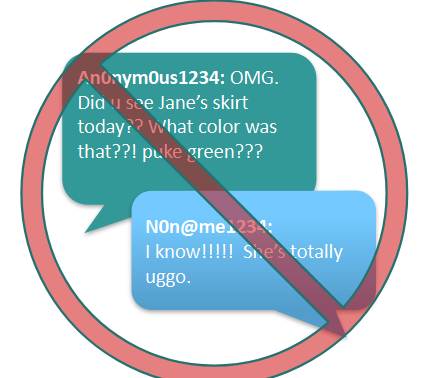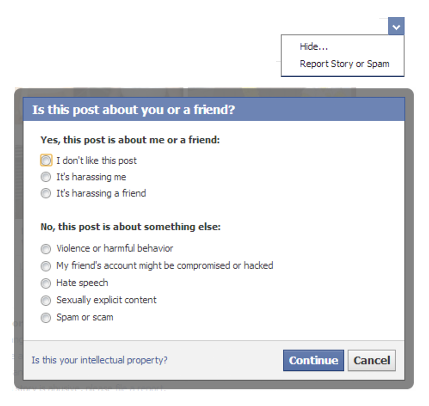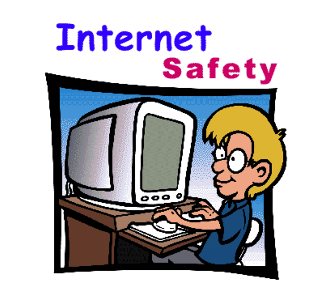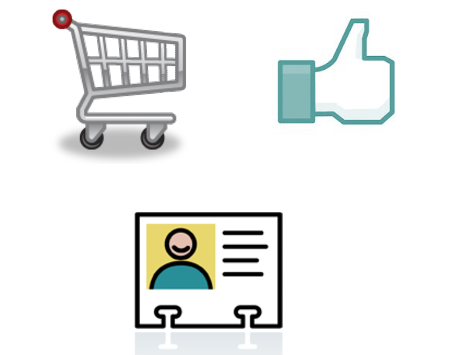Unit 2 - Online Safety
Introduction to Online Safety
Learning Objectives
Understand the definition and context of cyberbullying
Dealing with cyberbullying
Reporting cyberbullying
Understand what makes certain types of information private or more sensitive than others
Gain an understanding of how to protect themselves online and appropriately use the Internet
Safe browsing
Social media tips
UNIT 2 -SECTION 1
Cyberbullying
Netiquette
Do not spam forums, chat rooms, or social media sites with useless or repeated information
Do not pretend to be someone else
Do not post or distribute illegal material
Do not use abusive or threatening language
Do not try to obtain personal info about someone

Cyberbullying
Bullying refers to any unwanted, aggressive behavior
Cyberbullying refers to any bullying that takes place through use of electronic technology
- Forms:
- Insulting texts or emails
- Fake profiles
- Embarrassing photos or videos
- Affects 29.2% of students every year and the number is growing
Why its harmful:
Anonymous
Can be done 24/7

Cyberbullying: If it Happens to You
Do not respond to any messages, posts or emails that you do not know who they are from
Block offenders
Document and report the behavior so it can be addressed
Flag the content so other people arent hurt by it

Reporting Cyberbullying
- To schools:
- Inform your school of any cyberbullying as you would with other types of bullying
- Provide screenshots or records of bullying
- To your parents and law enforcement, especially if it involves any of the following:
- Threats of violence
- Explicit messages or photos
- Taking a photo or video of someone in a place where he or she would expect privacy
- Stalking and hate crimes
UNIT 2 – SECTION 2
- Personally Identifiable Information & Online Safety
Personally Identifiable Information (PII)
PII is any information specific to an individual
Examples:
Student ID Number
Date of Birth
Email Address
Mailing Address
Credit Card Information
Social Security Number
PII can be used by hackers to steal someones identity, bank funds, etc.
Hackers also use PII to impersonate victims in order to gain access to a different person or an organizations network
This type of information should only be shared with trusted, verified individuals

Online Safety: The Basics
Never share your password
Only share PII when absolutely necessary
Do not download any suspicious or unknown software
Always log out when you are done
Do not click on links from unsafe or unknown sites or emails
Never post anything you do not want public
You might think youre being safe and limiting your posts to only friends, but anything you post can be easily copied and pasted and sent to someone else If youre unsure about anything you do online, ask your parent or guardian if its OK

Risk Sites
Online Shopping
Social Media
Any other website that requires Personally Identifiable Information (PII).
These sites are enjoyable and useful. Just make sure you are being extra careful when visiting them.
Look for secure connection protocols, such as https://

Safe Browsing
Do not use public Wi-Fi to access risky sites
Check the address for spoofs
Use a secure website, especially when submitting PII
Look for an "s" after “http” in the web address
Look for a ‘padlock’ in the browser address bar
Look for a green background or green text
Browser Tools
Use automatic updates
Use and regularly update built-in safety features
Pop-up blockers
Anti-spyware
Do not use “Save Password” or “Remember Me” functions
Do not install unsecure or unknow browser extensions or plug-ins.
Internet Explorer is more frequently targeted and has more security flaws than any other browser
Anti-virus
Anti-phishing

Social Media Tips
Be picky
Only accept or follow friends you know in real life
Do not post your location
Be careful with apps
Games and geo-tracking apps may give away your location or other PII
Assume everything you post online is permanent
Colleges and employers check social media accounts
Dont over-share
Just because a site asks for information doesnt mean its required to set up an account
Customize and update your security settings
Default settings are weak
